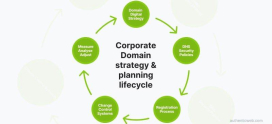
The Role of Hosting Costs in E-commerce Pricing Models
Are you looking to start or grow your e-commerce business but feeling overwhelmed by the thought of hosting costs? You’re not alone! Many budding entrepreneurs worry about how various expenses could impact their pricing models. You’ve probably found yourself torn between keeping costs low and ensuring impressive website performance. It’s a juggling act that might seem daunting—but fear not! In this guide, we’ll explore the crucial role that hosting costs play in e-commerce pricing models. Along the way, we’ll share practical tips and insights to help you navigate these waters confidently. So, grab a cup of coffee, and let’s dive in!
Understanding E-commerce Pricing Models
Before we delve into hosting costs, let’s take a moment to discuss e-commerce pricing models. These frameworks help businesses set their prices based on various factors, such as competition, costs, and perceived customer value.
Types of E-commerce Pricing Models
- Cost-plus pricing: Setting prices based on the cost of production plus a profit margin.
- Value-based pricing: Pricing based on the customer’s perceived value of the product.
- Dynamic pricing: Prices fluctuate based on market demand and competition.
- Subscription pricing: A regular, recurring price for continuous access to products or services.
Understanding these models is essential because they reveal how various factors influence your pricing strategy—and that includes hosting costs!
The Basics of Hosting Costs
So, what are hosting costs, and why do they matter? Think of hosting as the foundation of your online store. Just like a physical shop needs a solid structure to stay upright, your e-commerce site requires reliable hosting to function effectively. Hosting costs can include:
- Monthly or yearly fees: Paying for the space your website occupies on servers.
- Storage and bandwidth: Costs depending on how much data you need and the traffic to your site.
- Domain registration: yearly charges for maintaining your website’s domain name.
- SSL certificates: Ensuring secure transactions for your customers, vital for trust and compliance.
Why Hosting Costs Affect E-commerce Pricing
Your hosting fees are a direct expense that affects your margins and ultimately your pricing. Higher hosting costs can eat into profits, compelling you to either increase prices—potentially scaring away customers—or find ways to cut costs elsewhere.
Balancing Act: Quality vs. Cost
When it comes to hosting, you often get what you pay for. Cheap hosting services might seem like a win at first glance, but they can lead to slow load times, outages, and security vulnerabilities. On the other hand, investing in reliable hosting can enhance your website’s performance and customer experience. Isn’t that a scenario every e-commerce entrepreneur wants?
Choosing the Right Hosting Plan
With so many options available, selecting the ideal hosting plan can feel overwhelming. Here are some tips to simplify the decision-making process:
- Assess your needs: Determine the expected number of visitors and storage requirements.
- Look for scalability: Choose a host that allows you to upgrade as your business grows.
- Check customer reviews: Listen to the experiences of others before choosing a provider.
- Evaluate support options: Ensure they offer reliable customer support to assist during times of need.
How Hosting Costs Contribute to Customer Trust
In a digital marketplace where competition is fierce, building trust with your customers is paramount. High-quality hosting contributes significantly to that trustworthiness. Here’s how:
Website Performance and Speed
Fast-loading pages enhance user satisfaction and improve conversion rates. If your site is slow due to inadequate hosting, potential buyers may exit before even browsing your products.
Security Features
Investing in SSL certificates and other security measures is not just about compliance; it’s about ensuring your customers feel safe while shopping, which can lead to repeat business.
Analyzing the Cost-Benefit of Various Hosting Services
Understanding different tiers of hosting services can help you make an informed decision. Here’s a quick comparison:
| Hosting Type | Cost Range | Ideal For |
|---|---|---|
| Shared Hosting | $2 – $10/month | New businesses or small sites |
| VPS Hosting | $20 – $100/month | Growing businesses requiring more resources |
| Dedicated Hosting | $80 – $500/month | Large enterprises with significant traffic |
| Cloud Hosting | $10 – $300/month | Businesses needing flexible resources |
Choosing the appropriate type of hosting according to your business needs can significantly impact your e-commerce pricing strategy.
Incurring Hosting Costs Smartly
Now that you understand hosting costs and their importance, here are some strategies to manage these expenses efficiently:
- Negotiate with providers: Many hosting companies have room for negotiation, especially for long-term contracts.
- Utilize discounts and promotions: Keep an eye out for seasonal sales or offers from hosting companies.
- Monitor usage: Regularly review bandwidth and storage to avoid overpaying for unused capacity.
Future-Proofing Your E-commerce Site
Thinking long-term is essential for e-commerce success. As your business grows, so will your hosting needs. Be wary of platforms that may not scale with your growth. Opt for a scalable solution, like that offered by DarazHost, which provides flexible plans that grow with you without breaking the bank.
FAQs
What is the average cost of e-commerce hosting?
The average cost can range from $2/month for shared hosting to over $500/month for dedicated solutions, depending on your needs.
How do hosting costs impact my product pricing?
Higher hosting costs can reduce your profit margins, potentially leading to higher product prices.
Is cheap hosting worth it?
While it might save money initially, cheap hosting may lead to poor performance and downtime, costing you more in the long run.
Can I switch hosting providers later?
Yes, you can switch hosting providers at any time, but it can involve some technical challenges.
Do I need SSL for my e-commerce website?
Yes, SSL is crucial for secure transactions and helps build customer trust in your site.
What should I consider when choosing a hosting provider?
Look for reliability, scalability, customer support, and security features when choosing a hosting provider.
What happens if my e-commerce site goes down?
If your e-commerce site goes down, it can result in lost sales, decreased customer trust, and damage to your brand reputation. It’s crucial to choose a hosting provider with high uptime guarantees and reliable customer support to mitigate this risk.
understanding and effectively managing hosting costs is vital for pricing your e-commerce products competitively. By selecting the right hosting plan, balancing quality with affordability, and planning for future growth, you can set your business up for success. Remember, strong hosting can lead to a better user experience, improved customer trust, and ultimately, increased sales. Best of luck on your e-commerce journey!









